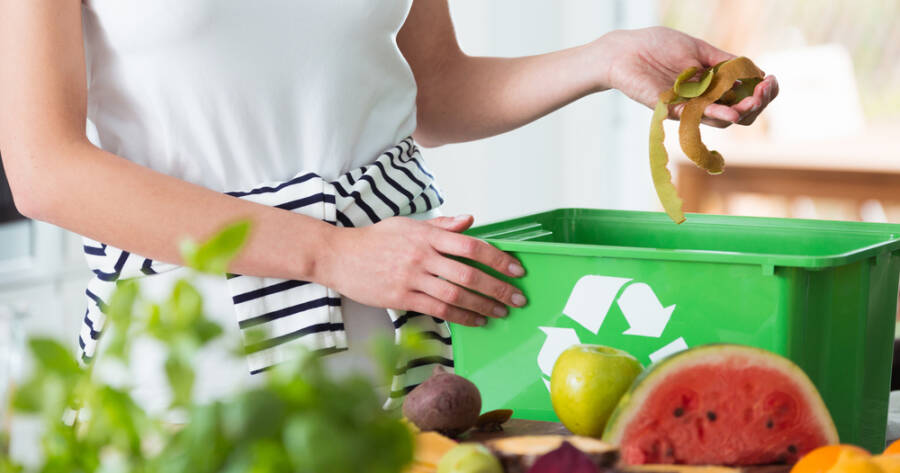As the European Union continues its push toward a circular economy, composting is no longer just a backyard hobby — it’s becoming an essential part of household waste management. New EU regulations require better separation of organic waste, prompting innovation in home composting technology. Enter smart composting bins: compact, efficient, and regulation-friendly systems designed to help EU residents turn food scraps into valuable compost with ease. Many smart solutions offer a cleaner, smarter way to meet both environmental goals and legal requirements.
Why Composting Matters Under EU Law
The EU’s updated waste-sorting regulations aim to reduce landfill dependency, cut greenhouse gas emissions, and improve soil health. Organic waste — which includes food scraps, coffee grounds, and plant trimmings — makes up a significant portion of household rubbish. When it ends up in landfills, it breaks down without oxygen and releases methane, a potent greenhouse gas.
To combat this, the EU now mandates the separate collection of bio-waste in all member states. Local governments have rolled out green bins, municipal composting schemes, and new public awareness campaigns. But for residents who want more control — or for those living in flats, tight urban spaces, or areas with limited public compost access — smart composting bins offer a convenient alternative.
These bins support waste-reduction targets while turning household scraps into nutrient-rich compost that can be used in gardens, balcony planters, or community green spaces.
What Makes a Compost Bin “Smart”?
Smart composting bins differ from traditional ones in both design and function. Most use automated features to speed up decomposition, reduce odors, and simplify the process. While not all are connected to apps or Wi-Fi, many include built-in sensors, aeration systems, and heating elements to maintain optimal conditions for composting.
Some popular features found in modern bins include:
- Odor control systems, using charcoal filters or sealed lids
- Internal stirring mechanisms, which mix the compost regularly without user effort
- Temperature regulation, to ensure efficient breakdown of organic material
- Full-bin alerts, via sound or app notification
- Compost-ready indicators, so you know when the material is finished
These systems are particularly helpful for beginners who may not be sure how to manage moisture levels, food ratios, or when to “turn” the compost. With smart composting bins, the guesswork is removed, making the process more accessible for all types of households.
Designed for Urban Living
One of the key advantages of smart composting bins is their space-saving design. In many EU cities, residents live in flats without gardens or outdoor storage. Compact indoor composters — often small enough to fit under a kitchen counter or in a utility cupboard — make it possible to compost year-round without needing access to a backyard.
Many models are also sealed and odor-neutral, meaning they can be used indoors without unpleasant smells. This is a game-changer for apartment dwellers or anyone who wants to compost without dealing with pests or messy bins.
In shared housing or buildings with limited recycling support, smart bins offer a personal way to manage bio-waste responsibly. Some units are even modular, allowing you to expand capacity as needed or share among flatmates or neighbors.
Meeting Local Regulations with Ease
Each EU country — and sometimes individual municipalities — has slightly different rules for waste separation and compost collection. However, all must comply with EU Directive 2018/851, which requires separate collection of organic waste by 2024. Smart composting bins are increasingly designed with compliance in mind, helping users sort their waste correctly and avoid fines or mistakes.
Some smart bins include sorting guides or color-coded compartments that help users correctly identify compostable materials. Others come with QR code support or app-based education tools that walk users through local composting dos and don’ts.
By keeping composting tidy and efficient, these systems support local efforts to meet EU waste targets — while empowering individuals to take responsibility for their household impact.
Smarter Habits for a Greener EU
Smart composting bins are more than just clever gadgets — they’re tools that support a larger shift in how Europeans manage waste and care for the planet. By combining technology with sustainable living, these devices make composting simple, accessible, and compatible with modern life.
As the EU continues to prioritize bio-waste separation and circular economy goals, home composting is likely to play a growing role in everyday routines. Smart bins help bridge the gap between legislation and action, offering households across the continent a chance to contribute — cleanly, easily, and effectively — to a greener future.

